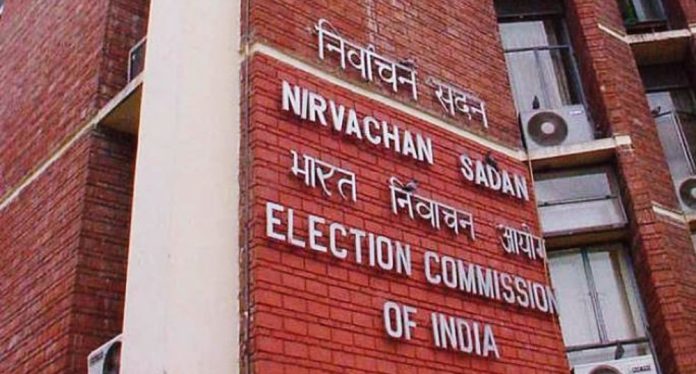– Md. Sami Ahmad
Patna: The People’s Union for Civil Liberties (PUCL) has termed the recently launched special intensive revision (SIR) of the electoral rolls in Bihar as a ‘disturbing development’. In a letter addressed to the Chief Election Commissioner and other Election Commissioners, PUCL has said, “The implications of this process have serious constitutional implications as they infringe upon the constitutional promise of universal adult franchise. “
The letter is signed by Dr. V. Suresh and Kavita Shrivastava, general secretary and president of the PUCL, respectively. The PUCL letter, dated 04-07-2025, says that there is a lack of clarity in ECI’s SIR order, and the ambiguities needed immediate clarification.
The letter says, “By going in for an ill-advised, hasty SIR which can only serve to exclude those without the requisite documentation, the ECI is betraying its constitutional mandate of equal access to the right to vote for the citizens of India.”
The PUCL says that the existing and prospective electors in Bihar are in a state of confusion. “The right to vote, with conditions, is a constitutional right. In the event, such ruptures have to be explained in terms of Article 14 and must be tested for manifest arbitrariness.”
The letter points out that in its earlier press note, the ECI announced during the SIR of the electoral rolls, “booth Level Officers (BLOs) shall be conducting house-to-house surveys for verification during the process of this intensive revision”.
But the ECI’s letter issued to the Bihar Chief Electoral Officer lays down a slightly different process for enumeration, which is a significant departure as it says the BLOs shall distribute the Enumeration Form to all existing electors (in duplicate) through House-to-House visit, guide the public on filling up Enumeration Form, and collect Enumeration Forms from the public, along with required documents. It also said the electors can upload Enumeration Forms and documents online.
The PUCL points out that the “Enumeration Form” also varies significantly from Form 4 as prescribed in the Rules. The letter says, “This short-cut, which shifts the onerous burden of filling up forms and collecting documents on to voters, may have been done due to a paucity of time, but it remains outside the Rules. If the ECI is itself having to curtail prescribed procedures to battle against time, it does raise fears that in focusing exclusively on finding reasons for disqualifications, the primary responsibility under Article 326 to include all voters, especially those from the social and economic margins would be compromised.”
The letter says that the time prescribed in the ECI directive is 90 days from the start to the end of the process, that is, from the date of distribution of Enumeration Forms (EFs) to their collection, verification, creation of draft rolls, raising of claims and objections, decisions on said claims and objections, appeal and the publication of the Final Electoral Roll on 30.09.2025.
It also pointed out that a mere 35 days is given from the time of distribution of EFs to the publication of the draft rolls.
The letter reminds that Bihar is an admittedly ‘document-scarce’ state, and in the short time, “hurriedly gathered and mostly untrained BLOs have to work with some of the most marginalised, often illiterate voters numbering according to the ECI’s own estimates up to 7.9 crores. Four crore 96 lakhs voters are from the 2003 and two crore 94 lakhs are new voters who were enrolled after 2003.
The letter apprehends that since the qualifying date of 01.01.2003, when the last SIR was held, there has also been an extensive delimitation exercise, such that the details of booths etc. as reflected in the 2003 electoral roll may not match the current status of existing voters, leading to a further requirement of detailed cross-matching. An additional 2.94 Crore Form 6 have also to be verified (other estimates put this number at 4.74 Crore).
It is incumbent upon the ECI to ensure that those with ‘document deficits’, or other vulnerabilities relating to access (to technology, ability to fill forms, be physically present on multiple occasions) do not get left out of the process.




